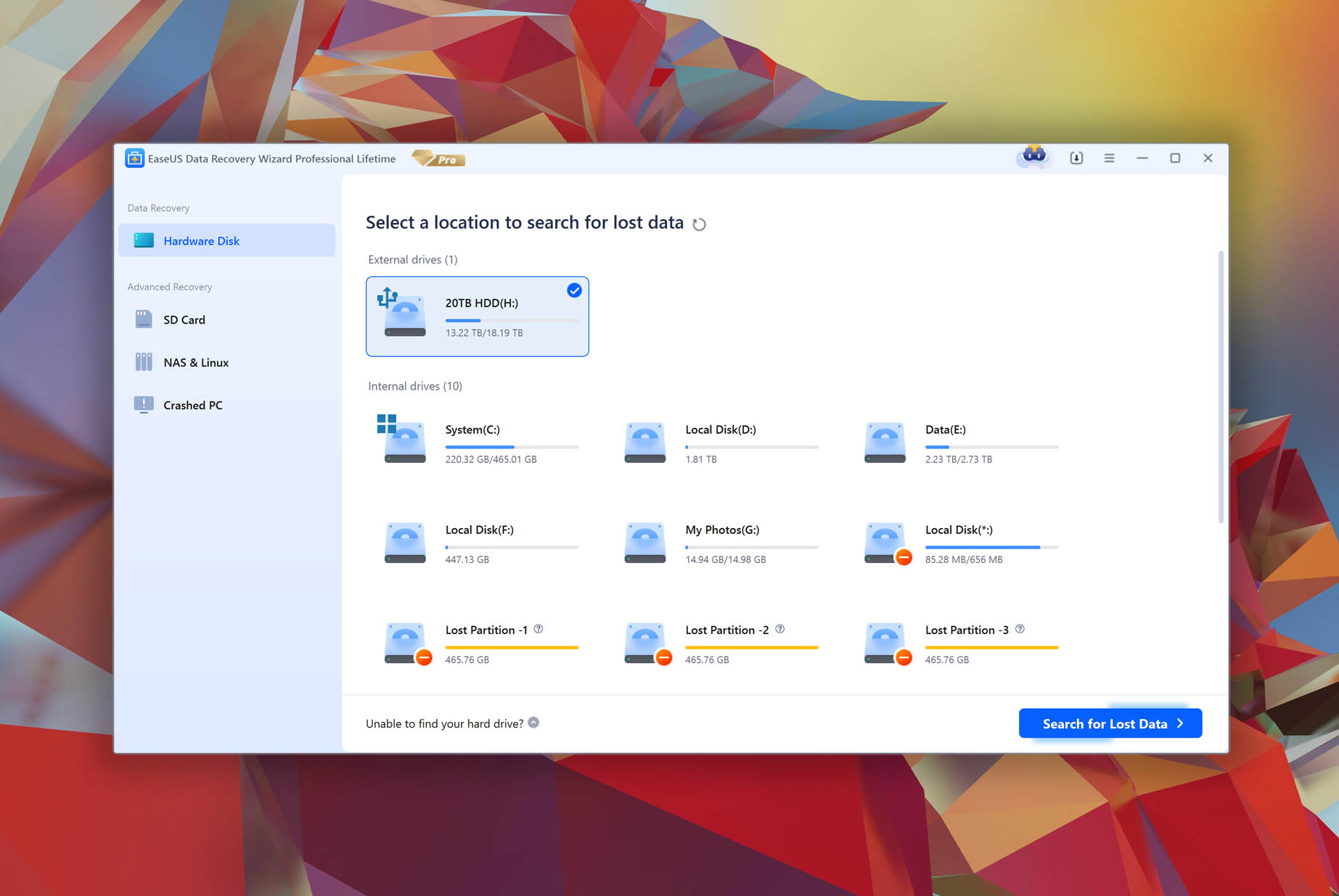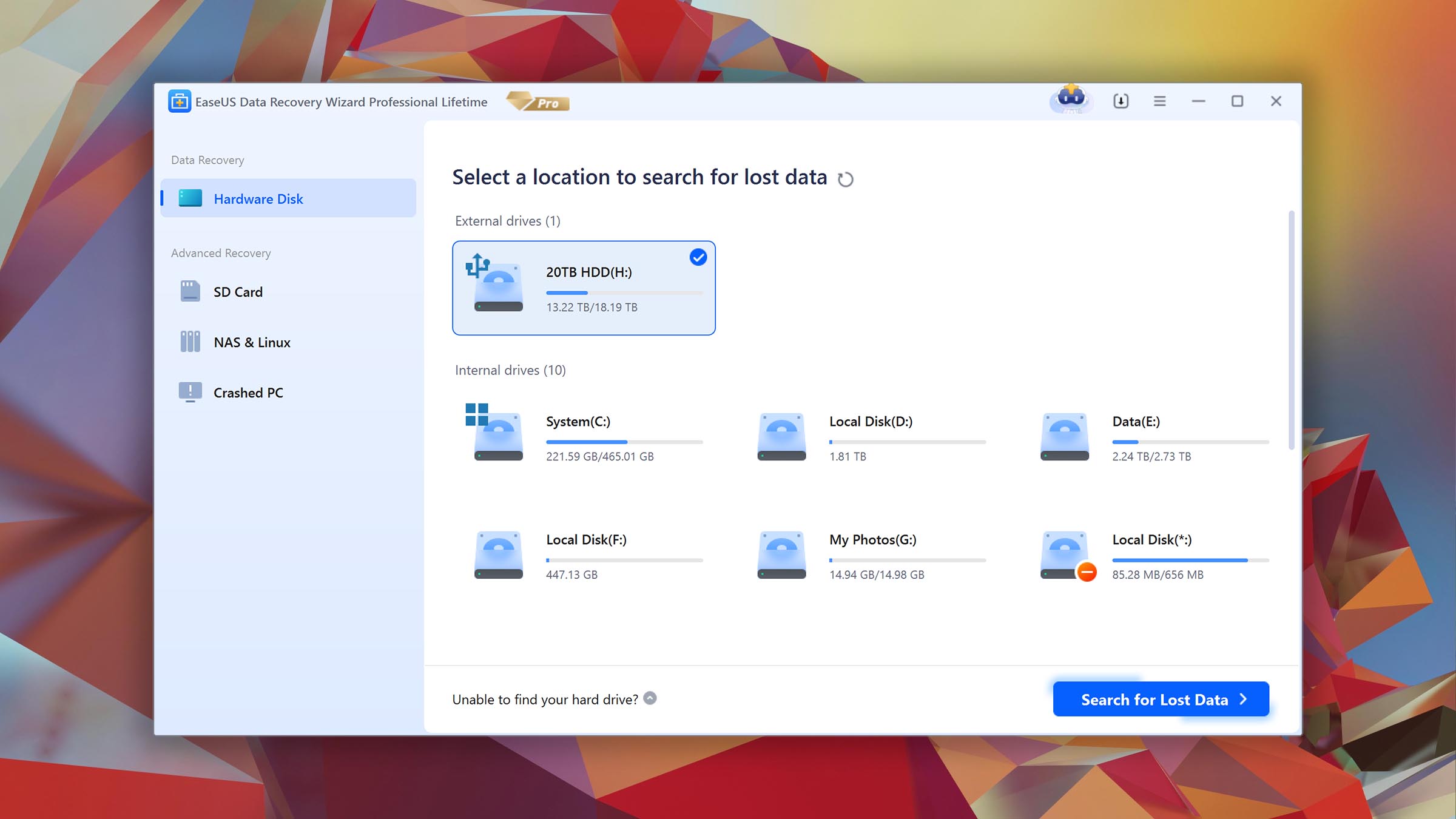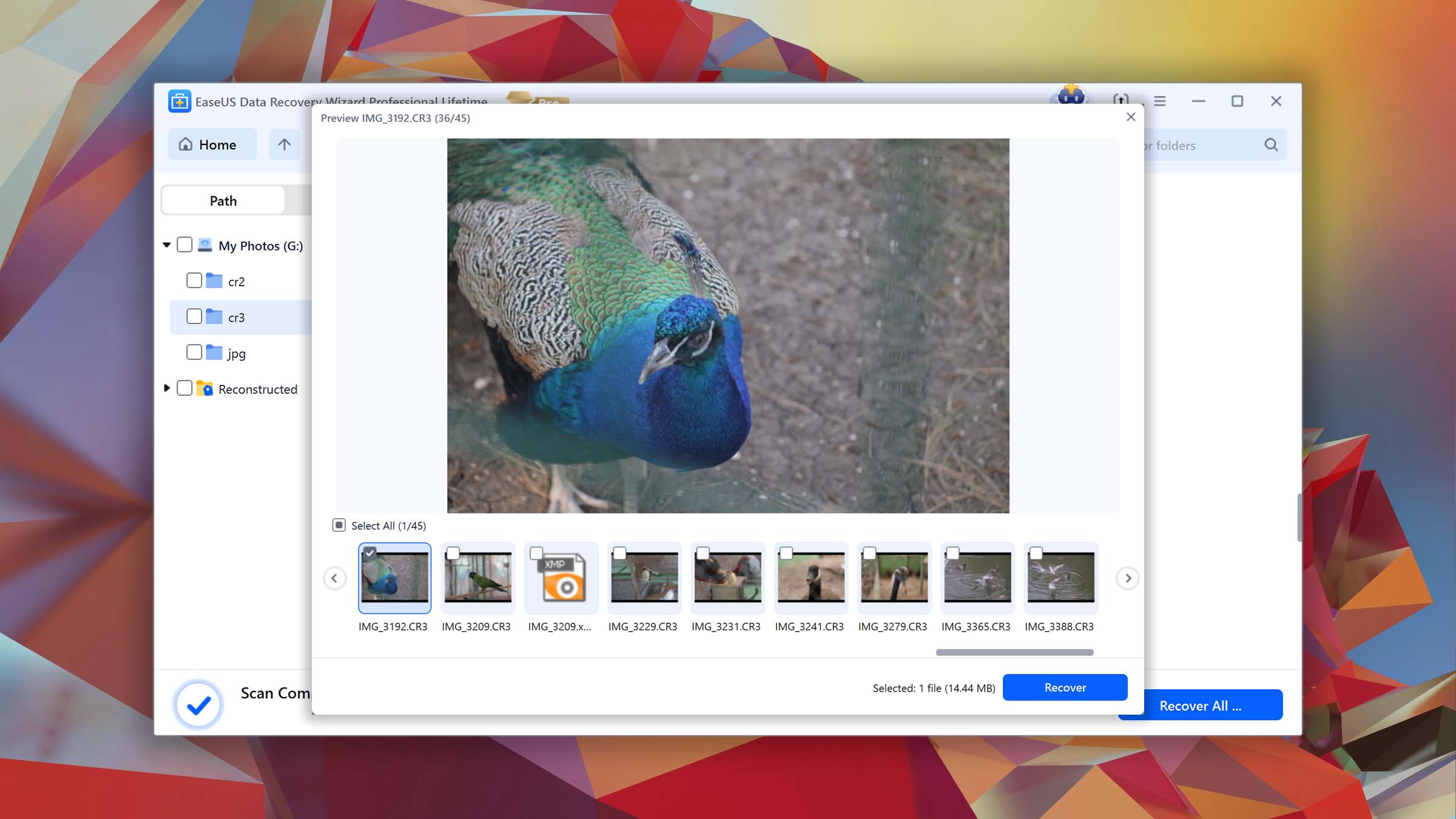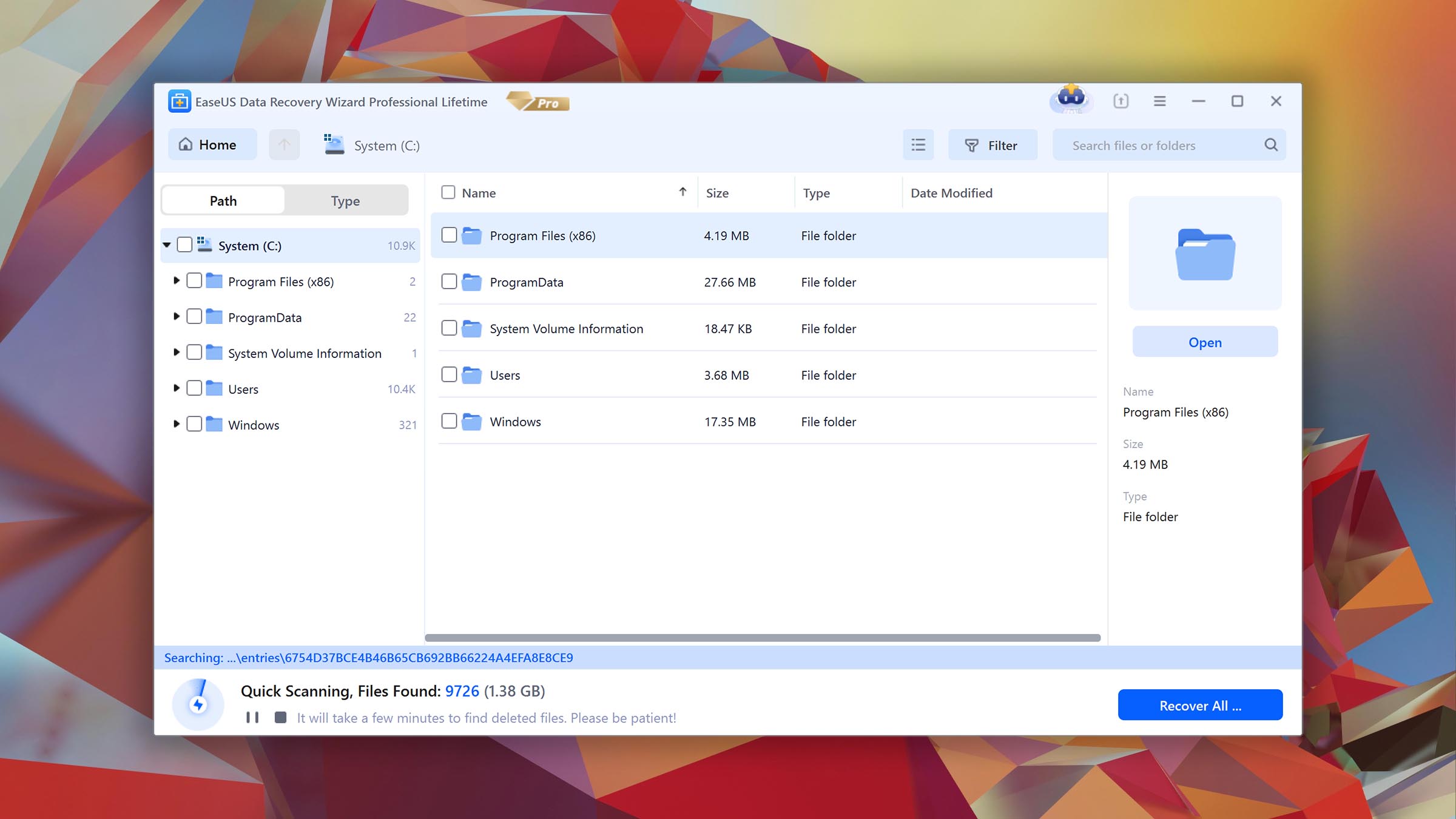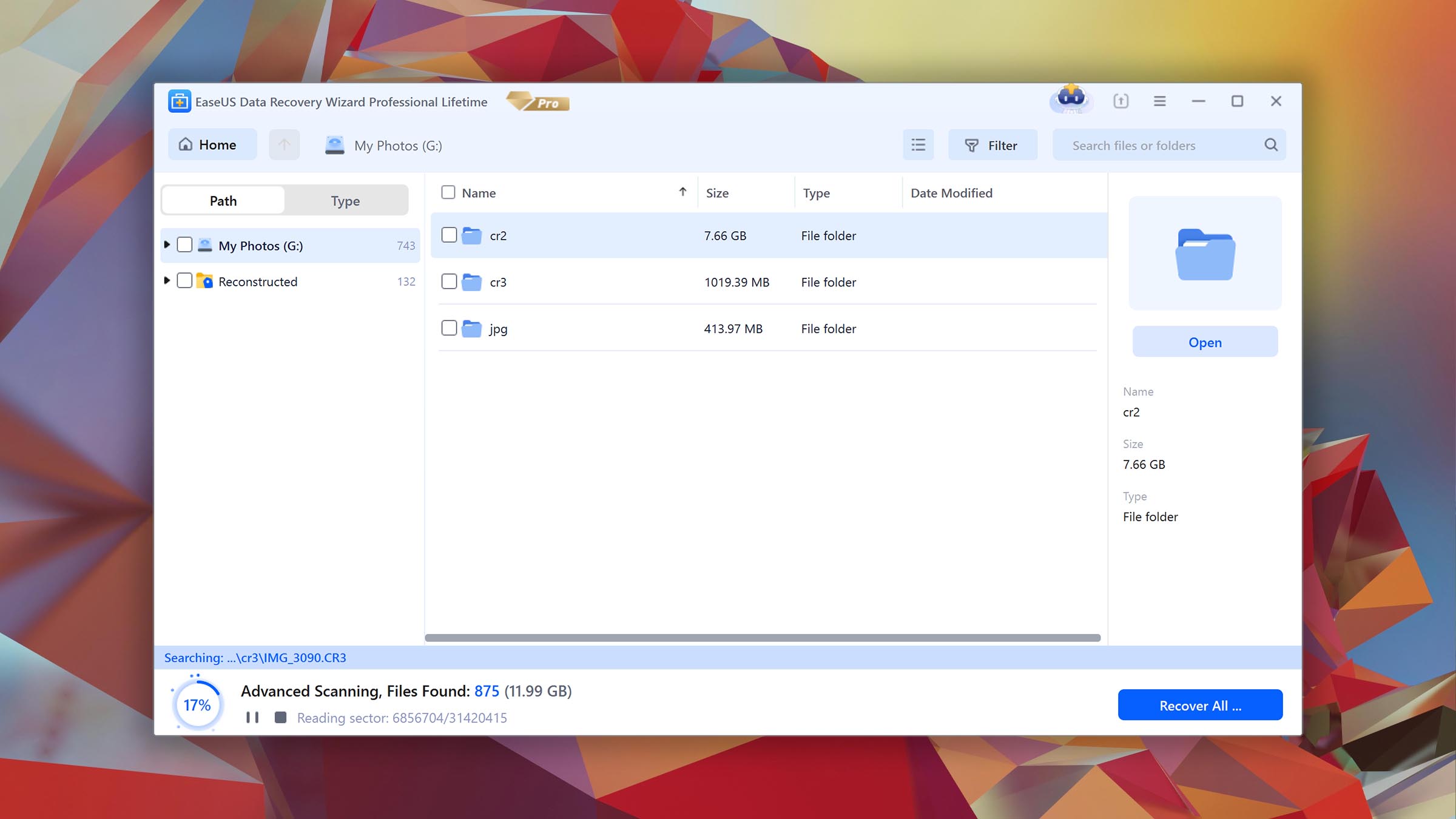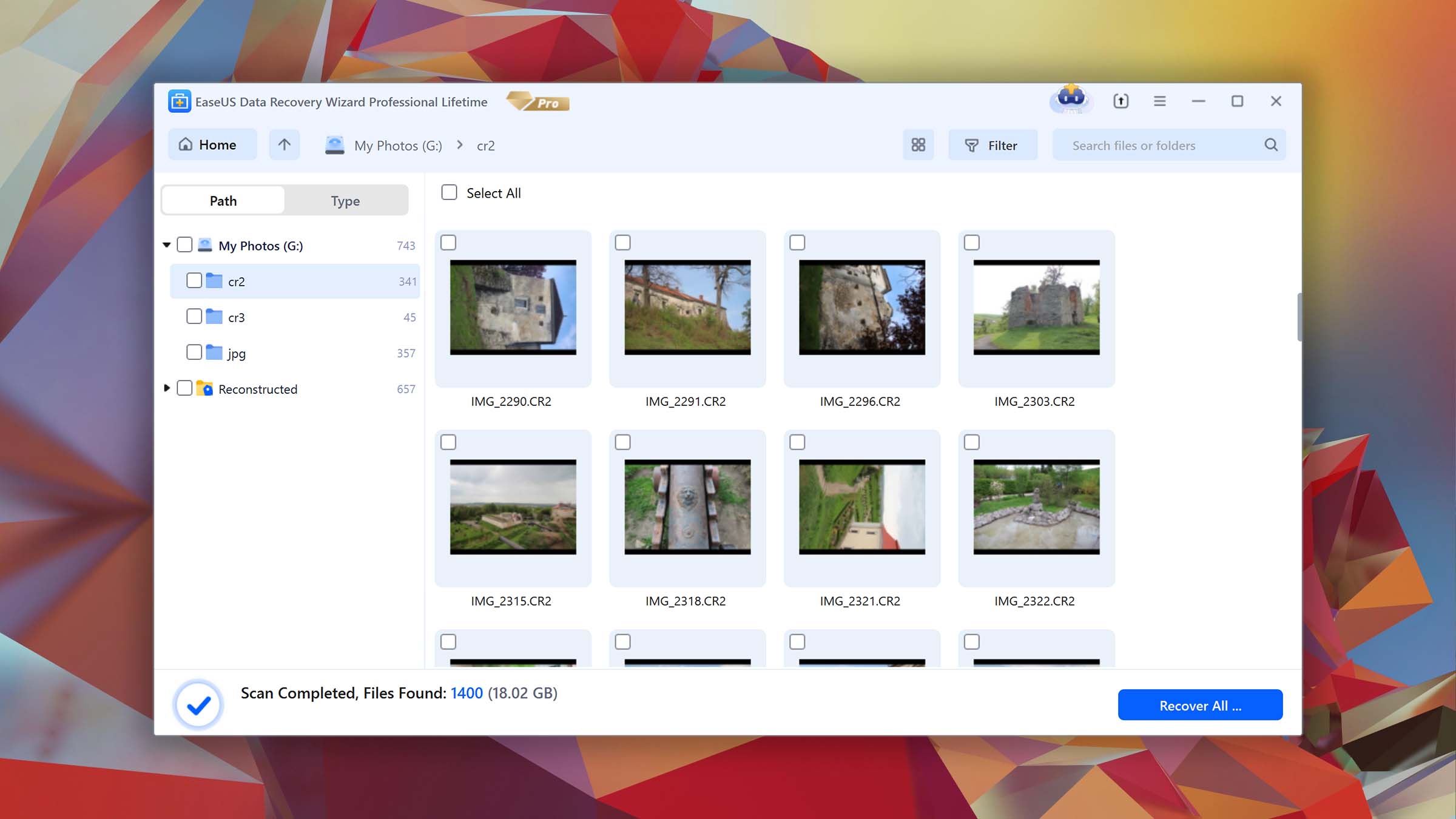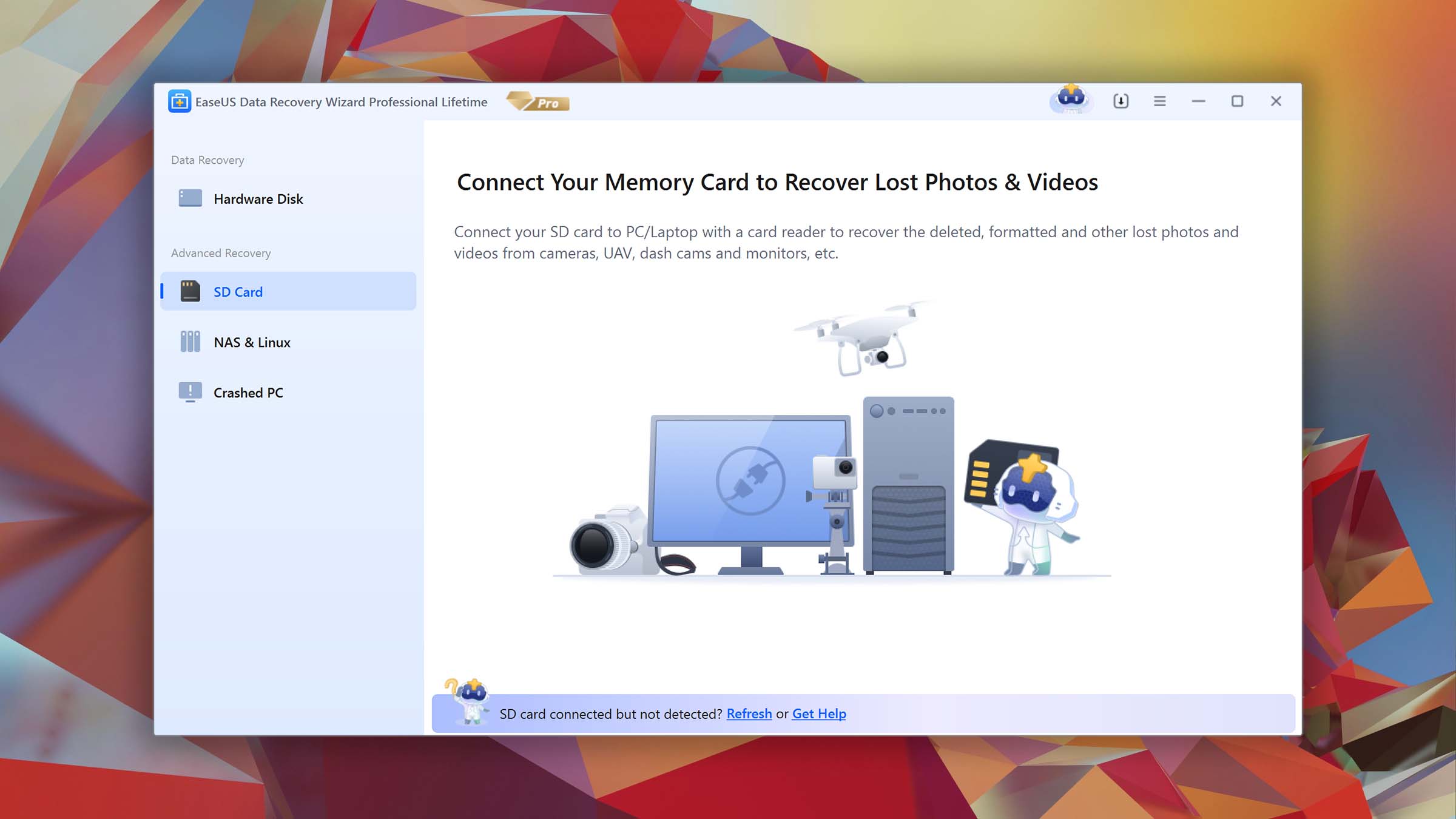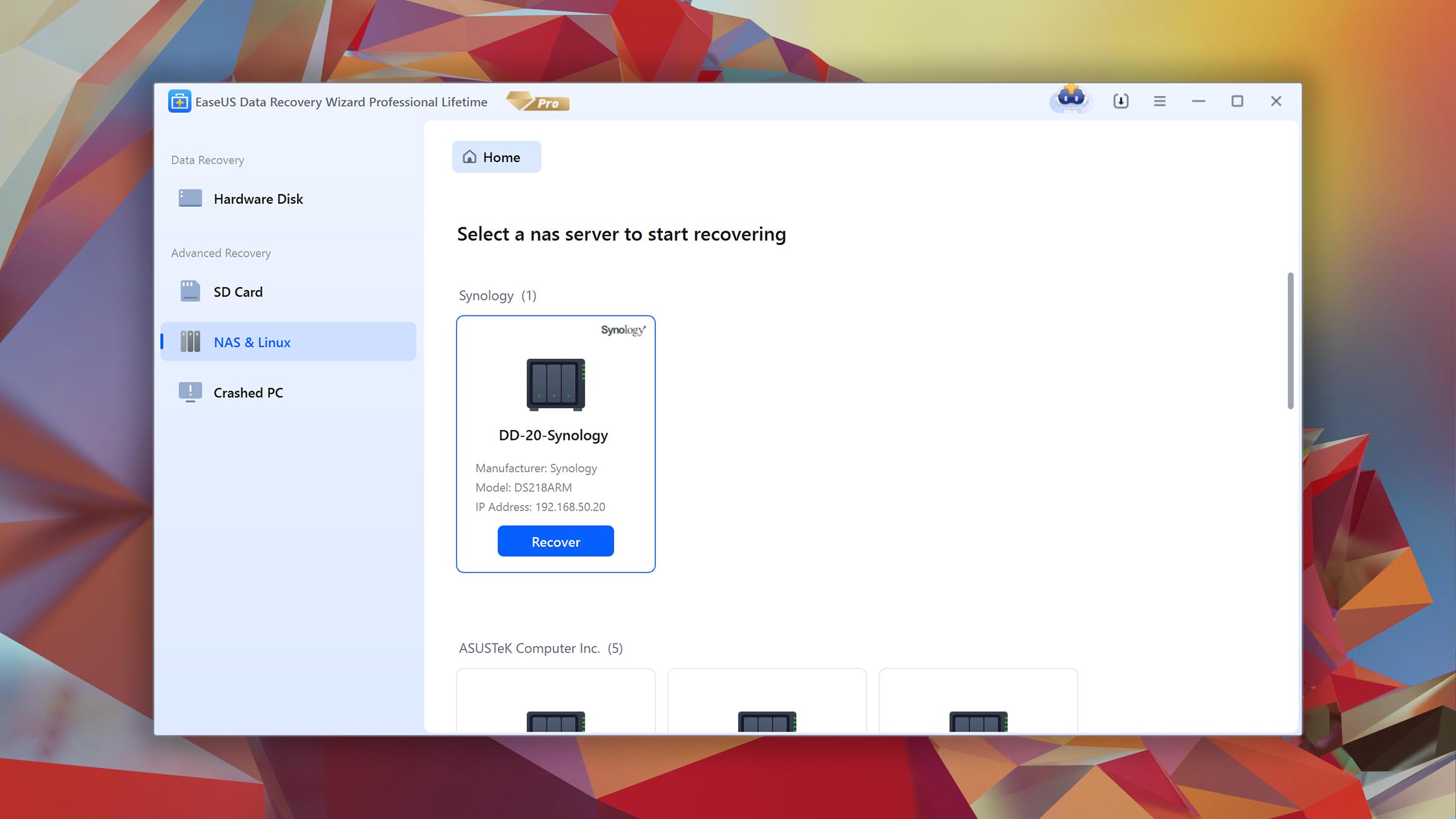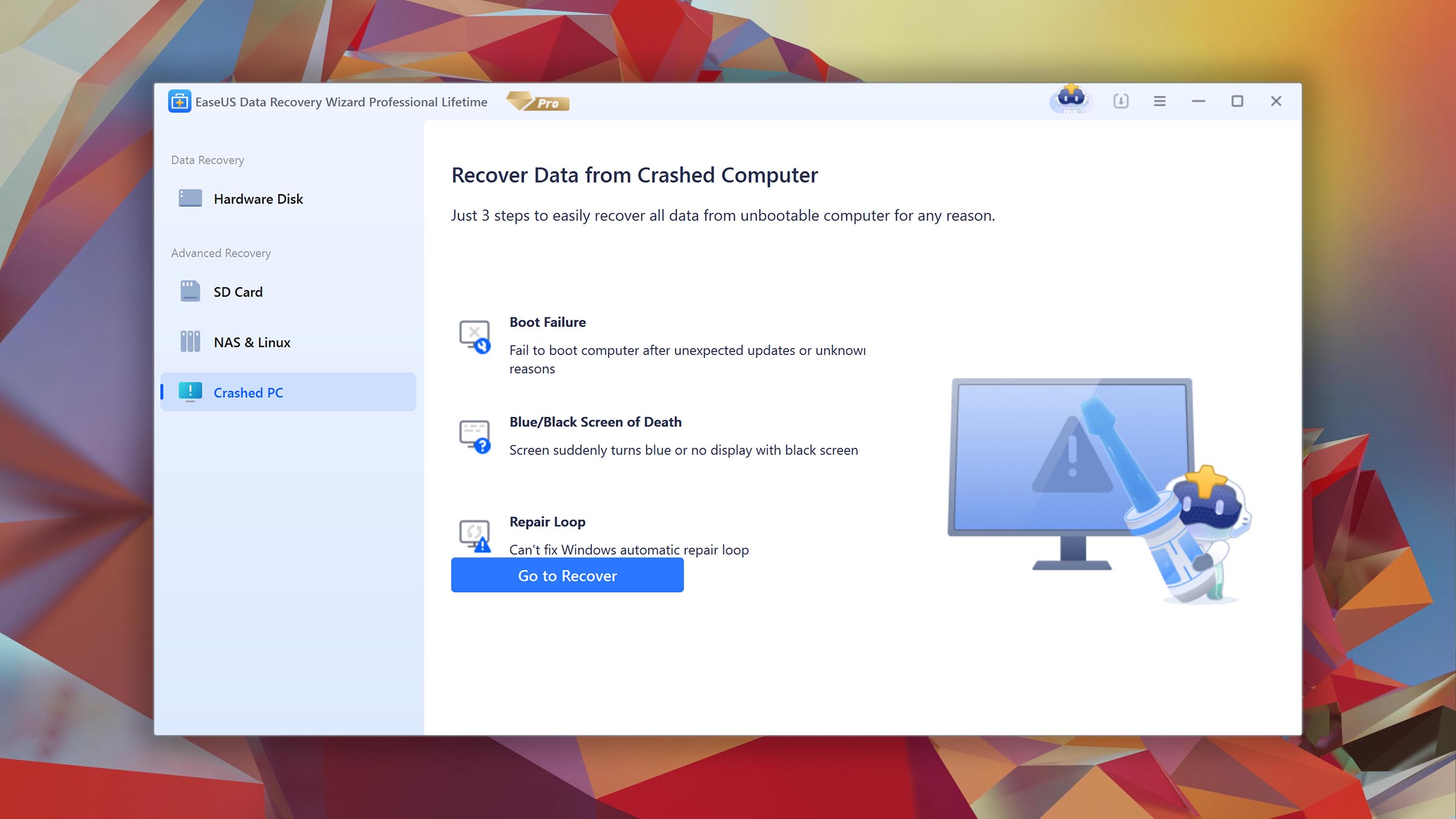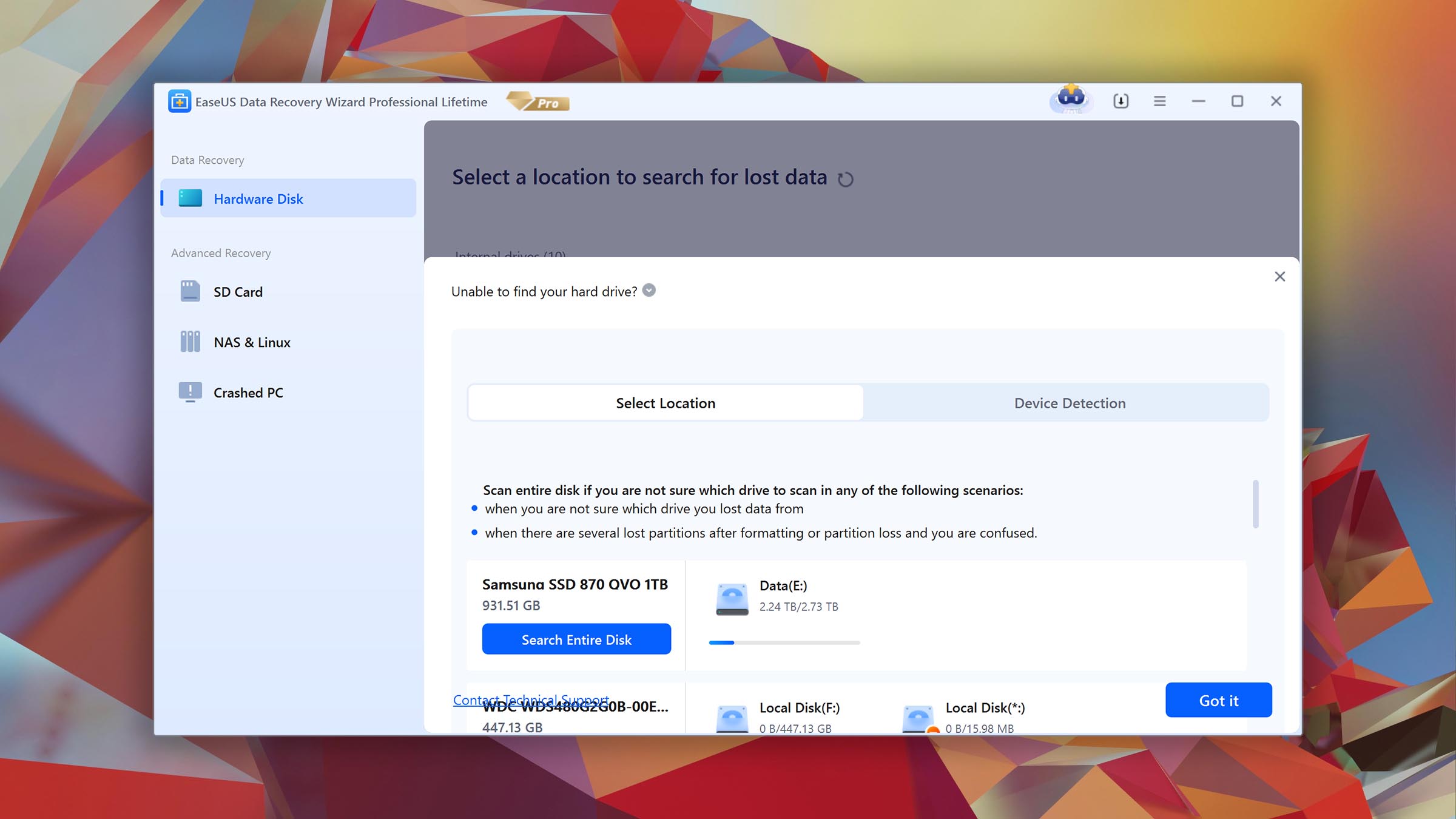Compare We streamlined our evaluation parameters into several clear categories. | Overall Winner | |
| Compatibility | 5 | 5 |
| Recovery Rate | 5 | 3 |
| Usability | 5 | 4 |
| File Type Support | 5 | 4 |
| Speed | 5 | 4 |
| Found files and Recovery quality | 200,000 Found files Good 100% Corrupted 0% Lost 0% | 200,000 Found files Good 100% Corrupted 0% Lost 0% |
| PRO Version | $89.00 / Perpetual Lifetime | $69.95 / 1 month Subscription + Lifetime |
| Read full Disk Drill review | Read full EaseUS Data Recovery Wizard review |
Introduction
Finding the right data recovery tool can be difficult. You need to find one that is easy to use and capable of recovering your data with the highest chance of success while also remaining affordable. This comparison will be between two well-known data recovery tools: Disk Drill and EaseUS for Windows.
To ensure our comparison is objective and fact-based, we use the data compiled from our review process. Each tool has already been reviewed in-depth and compared against data points that provide an accurate and unbiased view of each tool’s capabilities.
Disk Drill is an industry favorite as it offers top-notch data recovery alongside many additional (and free) features that help you take good care of your data. It's easy to use and offers fast scanning to reduce wait times.
EaseUS is a popular name in the data recovery space. As one of the top recovery tools, it's favored for its clean user interface and easy recovery process. Since its release in 2005, it has continuously refined its recovery capabilities and built a large following.
Top Disk Drill Pros
Top EaseUS Pros
Pricing • Business model
| 1 | Distributed as | Freemium | Freemium |
| 2 | Trial version available | pros | pros |
| 3 | Trial version limitations | Recover up to 500 MB for free | Recover up to 2 GB for free |
| 4 | Number of devices per license |
|
|
| 5 | Starting price | $89.00/ Perpetual | $69.95/ 1 month |
| 6 | License model | Lifetime | Subscription + Lifetime |
| 7 | No credit card to try | pros | pros |
| 8 | Money back guarantee | pros | pros |
| 9 | See Plans & Pricing | Pricing details | Pricing details |
Both Disk Drill and EaseUS offer users a chance to trial the software by offering free recovery up to a certain threshold, with EaseUS offering slightly more than Disk Drill. In terms of overall price, Disk Drill is better by only offering lifetime licenses, as opposed to EaseUS which offers subscription-based and lifetime licenses.
Data Recovery Performance
Of course, when you look for a data recovery tool, data recovery performance is at the top of the list of priorities. With that being said, let’s break down how Disk Drill compares against EaseUS in terms of recovering data.
Clever In-Depth Scan of File Systems
| 1 | FAT32 partitions | Full support | Partial support |
| 2 | exFAT partitions | Full support | Partial support |
| 3 | NTFS partitions | Full support | Full support |
| 4 | EXT4 partitions | Not supported | Not supported |
| 5 | HFS+ partitions | Not supported | Full support |
| 6 | APFS partitions | Not supported | Not supported |
A deep scan uses the file system to search for recoverable data. Disk Drill offers better support for FAT32 and exFAT recovery, as EaseUS only offers partial support for these file systems. However, EaseUS does offer full support for HFS+ partitions whereas Disk Drill does not. Neither of the applications supports recovery from EXT4 or APFS partitions.
Overall, both offer similar support, with Disk Drill performing just a bit better when recovering data from Windows partitions.
Quick Scan of File Systems
| 1 | FAT32 partitions | Full support | Partial support |
| 2 | exFAT partitions | Full support | Partial support |
| 3 | NTFS partitions | Full support | Full support |
| 4 | EXT4 partitions | Partial support | Not supported |
| 5 | HFS+ partitions | Not supported | Not supported |
| 6 | APFS partitions | Not supported | Not supported |
A quick scan determines how well a recovery tool can quickly restore recently deleted data. As demonstrated in our tests, Disk Drill has better overall support and great performance when recovering files from Windows (FAT32, exFAT, NTFS) partitions. It also partially supports EXT4 partitions, which EaseUS doesn’t. EaseUS has full support for NTFS partitions but struggles a bit with FAT32 and exFAT partitions. Neither support Apple (HFS+, APFS) partitions.
Other Scan Types
| 1 | The number of file types supported by signature scan | Some (≈400) | Some (≈200) |
| 2 | BitLocker support | Full support | Full support |
| 3 | Windows shadow copies scanning | Not supported | Not supported |
| 4 | Scan for lost partitions | Full support | Not supported |
| 5 | Recovered files' labeling | Full support | Full support |
| 6 | Partial file recovery | Full support | Full support |
| 7 | Disk images: scan and recovery | Full support | Not supported |
DiskDrill supports more file types with its signature scan, giving you a better overall chance at recovery if the data you need doesn’t show for other scans. It’s also able to scan for lost partitions and perform recovery on disk images, both of which aren’t possible with EaseUS.
Both Disk Drill and EaseUS have full support for BitLocker-encrypted drives and support partial file recovery.
Real-Life Recovery Challenge
| 1 | Raw photo recovery | 100% | 77% |
| 2 | Video formats recovery | 99% | 62% |
| 3 | Document formats recovery | 84% | 80% |
In terms of recovery, the clear winner is Disk Drill. Disk Drill is able to recover raw file formats such as ODT, OSD, KEY, BRAW, and JP2 that EaseUS cannot. Even for the file formats that are supported by both tools, Disk Drill has a higher rate of success, especially with file types you see more often such as AVI, PPTX, XLSX, and GPR.
Feature Comparison
In the early days of data recovery, many sought out data recovery tools for just that – data recovery. Now, it’s commonplace for data recovery tools to include additional features that further enrich the user’s experience and help prevent data loss from occurring again. Let’s take a look at what each tool has to offer.
Both companies do a great job at marketing their tools by keeping them up-to-date and providing excellent customer support. Each tool has an extensive knowledge base to answer common queries and various support channels, though Disk Drill does not offer customer support over the phone. A changelog is kept for both recovery tools so users can easily see what changes have been made recently.
In terms of Usability, Disk Drill is the clear winner. When you’re performing scans or backups, it’s possible for your storage media to disconnect during the process (especially if it’s damaged). Disk Drill, unlike EaseUS, is able to automatically resume the scan or backup once the storage media is reconnected rather than stopping the entire process. Moreover, you can mount recoverable items as a disk, should you want to.
Both data recovery tools have the same support for devices. If you’re recovering data from internal or external hard drives or solid-state drives, you’ll find that both applications offer full support. The same is true for removable USB drives and memory cards, like SD cards.
Unmountable partitions are supported for trickier recoveries. Both tools also offer partial support for RAID arrays. Unfortunately, neither of the applications support recovery from iOS or Android devices.
There are some recovery features that help complement the overall recovery process. Disk Drill is capable of creating byte-to-byte backups and protecting your data, helping you perform recovery safely, and ensuring your data is safeguarded in the event of another data loss event. On the other hand, EaseUS allows you to create a bootable recovery drive, which is helpful when your system drive becomes damaged.
You won’t find many extras in either Disk Drill or EaseUS. If you find that your recovered videos are corrupted and no longer usable, EaseUS has a separate corrupted video repair tool you can use in an attempt to restore them. Disk Drill has active disk health monitoring, which regularly scans your drive’s SMART data for potential problems and alerts you if necessary.
Wrapping Up
Taking an objective approach when reviewing data recovery tools allows you to take a detailed look at what each tool can offer. In our testing, it’s clear that Disk Drill has more to offer than EaseUS in terms of affordability, usability, and recovery capabilities.
While EaseUS certainly has a decent chance at recovering your files, Disk Drill outperforms it by offering a higher chance of success and offers useful features that also help protect your data going forward.
A trusted and proven recovery tool that's capable of providing high-quality results.
Visit developer's websiteWhy choose Disk Drill
Read full Disk Drill for Windows reviewWhy choose EaseUS
Read full EaseUS Data Recovery Wizard for Windows reviewMore software comparisons
Our mission is to help you choose the right data recovery tool. We repeat the same process we used to compare Disk Drill and EaseUS against as many recovery tools as we can. Take a moment to look at our other comparisons if you’re still on the fence about which to get.
- 46 publishings
- Auckland, New Zealand
Jordan Jamieson-Mane is a content writer with a focus on technology-related content. He has spent much of his life studying and working with all types of technology. During his time as a writer, he has written countless articles in the field of data recovery, breaking down complex topics into articles that are easy to understand.
When he's not writing articles on data recovery, Jordan enjoys traveling the world, reading books, and building websites.
- LC Tech FILERECOVERY Professional Review – Can It Compete with Modern Recovery Tools?
- UFS Explorer Review – A Powerful Recovery Tool With Lots to Offer
- Cisdem Data Recovery for Windows Review – A Capable Copy
- AnyRecover Data Recovery Review – A Polished Solution for Basic Users
- iBoysoft Data Recovery Review: Not Much to Offer
- Frisco, Texas, United States
Yevgeniy Tolkunov is Hardware Engineer at ACE Data Recovery. Yevgeniy has a Master's Degree in Physics, Information Technology; 15+ years of experience.














